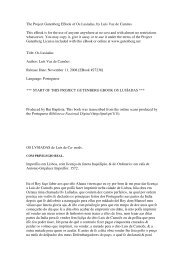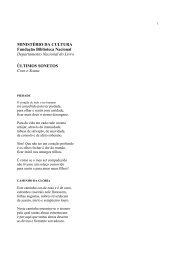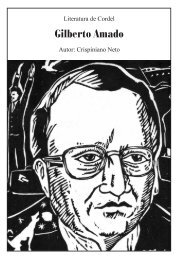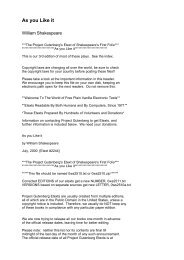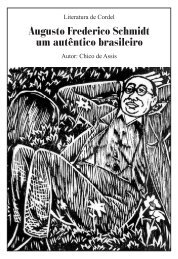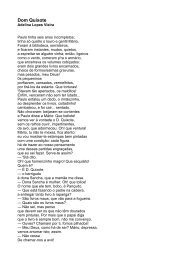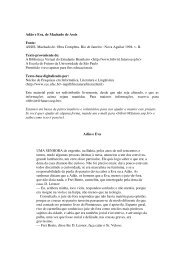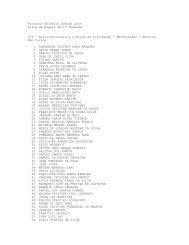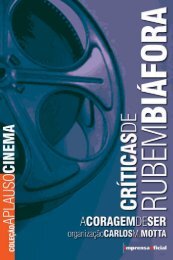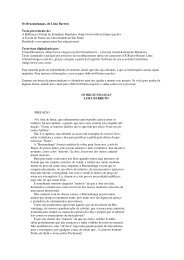Create successful ePaper yourself
Turn your PDF publications into a flip-book with our unique Google optimized e-Paper software.
Very curious is the connexion between the legends of a countryside and the smoke of its<br />
cottages in the lines:<br />
Les légen<strong>des</strong> toujours mêlent quelque fantôme<br />
A l'obscure vapeur qui sort <strong>des</strong> toits de chaume,<br />
L'âtre enfante le rêve, et l'on voit ondoyer<br />
L'effroi dans <strong>la</strong> fumée errante du foyer. (Éviradnus.)<br />
Of the infinite variety of Hugo's poetic gifts such a selection as is contained in this<br />
volume can of course give but a very inadequate idea. The extraordinary versatility and<br />
fecundity of his genius can be appreciated only by those who have read all, or at least<br />
much, of his output. But the first series of the Légende is perhaps that part of the poet's<br />
work in which substance and beauty, original thought and vivid expression, are found in<br />
the most perfect combination. Written in middle life, it stands midway between his<br />
earlier poetry with its more lyric note and his <strong>la</strong>ter work with its deeper and more<br />
prophetic tones. In point of expression the poet's powers had attained their full<br />
development; he has perfect command of rime; the versification is free and shows no<br />
trace of the stilted style of his first volumes; the <strong>la</strong>nguage is copious and eloquent, but<br />
exhibits few signs of that verbosity and tendency to vain repetition which, as has been<br />
already remarked, marred some of his <strong>la</strong>ter poetry. In the Légende, no doubt, are a<br />
thousand extravagances, bizarreries, anachronisms, and negligences. But the greatest<br />
poet is not, like the greatest general, he who makes fewest mistakes, but he who<br />
expresses the noblest and truest feeling in the noblest and truest <strong>la</strong>nguage. So judged,<br />
the Légende will take its p<strong>la</strong>ce amongst the best that the nineteenth century produced in<br />
poetry.<br />
G. F. BRIDGE.<br />
LONDON,<br />
March, 1907.<br />
BIOGRAPHICAL SKETCH<br />
Victor-Marie Hugo, son of an officer in Napoleon's army, was born at Besançon on<br />
February 26, 1802. He spent a roving and unsettled childhood, for wherever the father<br />
was sent the mother and children followed. The first three years of his life were spent in<br />
Elba, where he learnt to speak the Italian dialect spoken in the is<strong>la</strong>nd in addition to his<br />
mother tongue. Then for three years the family was in Paris and Victor got a little<br />
education in a small school. But in 1805 the father was appointed to a post in the army<br />
of Naples, and in the autumn of 1807 his wife and children joined him at Avellino. Two<br />
years <strong>la</strong>ter General Hugo was invited by Joseph Bonaparte to fill an important position<br />
in the kingdom of Spain, and, <strong>des</strong>irous that his sons should receive a good education, he<br />
sent his family to Paris, where his wife chose for their home the house in the Rue <strong>des</strong><br />
Feuil<strong>la</strong>ntines which has been so charmingly <strong>des</strong>cribed by the poet in the lines Ce qui se<br />
passait aux Feuil<strong>la</strong>ntines. There he learnt much from an old soldier, General Lahorie,




